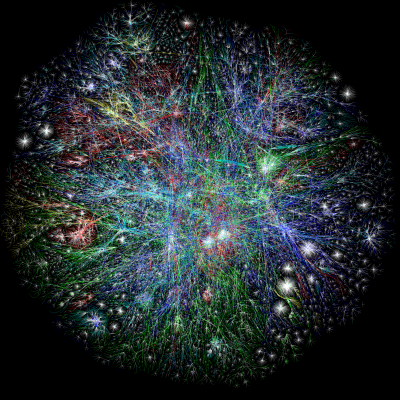Post written by Helen Cooper, our Research Support Librarian. This blog was first published on the IT & Library news blog here.

What do we mean by Open Access?
“Open Access (OA) refers to the practice of making peer-reviewed scholarly research and literature freely available online to anyone interested in reading it” see https://opensource.com/resources/what-open-access. Many scholarly works can be found and downloaded from the internet, but not everything you find has been made available legitimately. Before you can use a work that you have located on the web you should be sure that the person or organisation that has uploaded it had the right to do so. You will also want to know what tests of quality and scholarly integrity have been applied. Is the hosting site a reputable peer-reviewed platform, or a pay-to-publish commercial enterprise? The Think.Check.Submit process is aimed at scholars choosing where to publish their own work, but the principles can be applied to sourcing scholarly works too.
Once you have established the legitimacy of the work, you then need to know if you can use it. Being able to access the work for free does not necessarily mean you have the right to re-use it. Unless a piece of work has been licensed by the copyright owner to be copied, remixed and re-distributed then you may be limited as to what you can do with the information you have found. Unless copyright exceptions apply (these allow limited use of copyright material for socially beneficial purposes without the rightsholder’s permission), reuse of a work will require a licence applied by the Copyright owner. The application of a licence, for instance one of the Creative Commons suite of licences, gives an indication of what you can do with the work you have found. However, without a Creative Commons Licence, or a similarly clear statement of what is allowed, you cannot be sure as to what re-use has been permitted and you will need to err on the side of caution. Unless it’s clearly labelled as Open Access, it probably isn’t.
Authoritative sources of OA materials
To help with finding safe OA versions of scholarly works, there are a number of services that list Open Access resources from authorised sources, and some services which search for and deliver available Open Access content. Some search across other web pages looking for works that are available and meet a defined test of quality and authority, others invite contributions from publishers and copyright owners. Some offer search engines like bibliographic databases, others offer a tool to locate an Open Access version of a specific title. All of them support the principle of Open Access, but within the bounds of current copyright legislation and international scholarly practice.
A JISC supported development that will search for your desired work for an Open Access copy. If one is not available they will make a request that a version should be made Open Access. This service will not help you browse but will help you find an accessible copy once you know what you are looking for. They also provide a button that you can install on your browser for instant use.
Sources include most of the major aggregated repositories globally:
- OA DOI provides the data behind Unpaywall an app that leads straight to legitimate author uploaded versions of the publisher’s articles like the OA Button.
- SHARE A US service developed by the Association of Research Libraries in partnership with the Center for Open Science
- CORE “We offer seamless access to millions of open access research papers, enrich the collected data for text-mining and provide unique services to the research community.”
- OpenAIRE A European resource that offers an OA search engine and a campaign platform driving Open Access development and policy.
- Dissemin A French resource with a slightly different approach: “ Dissemin searches for copies of your papers in a large collection of open repositories and tells you which ones cannot be accessed”
- Europe PMC A life sciences specialist.
- BASE An aggregator supported by a German University
OpenDOAR is an authoritative directory of academic open access repositories. It is supported by JISC and the University of Nottingham. You can search for repositories and also search for content within those repositories. As well as finding publisher versions of articles where the institution or author has paid for the article to be available on a CC-BY licence you will also find Author Accepted manuscript versions of works otherwise reserved behind a publisher paywall. They say:
“OpenDOAR has opted to collect and provide information solely on sites that wholly embrace the concept of open access to full text resources that are of use to academic researchers. Thus sites where any form of access control prevents immediate access are not included…”
“Each OpenDOAR repository has been visited by project staff to check the information that is recorded here. This in-depth approach does not rely on automated analysis and gives a quality-controlled list of repositories.”
DOAJ – Directory of Open Access Journals
DOAJ is a community-curated online directory that indexes and provides access to high quality, open access, peer-reviewed journals. DOAJ is independent and funded from donations. They say:
“We define open access journals as journals that use a funding model that does not charge readers or their institutions for access … we take the right of users to ‘read, download, copy, distribute, print, search, or link to the full texts of these articles … or use them for any other lawful purpose’ as mandatory for a journal to be included in the Directory”
“The journal must exercise peer-review with an editor and an editorial board or editorial review (particularly in the Humanities) carried out by at least two editors.”
DOAB Directory of Open Access Books
Records and links are contributed from publishers and then made available as a searchable website or in machine readable formats for libraries and other aggregators to use. They say:
“Academic books in DOAB shall be available under an Open Access license (such as a Creative Commons license)”
“Academic books in DOAB shall be subjected to independent and external peer review prior to publication”
The oldest digital library, supported by volunteers to make the full-text of public domain books available on the internet in long lasting, open and accessible formats. They say:
“Project Gutenberg offers over 54,000 free eBooks: Choose among free epub books, free kindle books, download them or read them online. You will find the world’s great literature here, especially older works for which copyright has expired. We digitized and diligently proofread them with the help of thousands of volunteers.”
OAPEN Online Library and Publication Platform
The OAPEN library contains freely accessible academic books focusing on humanities and social science subjects. They Say:
“OAPEN works with publishers to build a quality controlled collection of open access books, and provides services for publishers, libraries and research funders in the areas of deposit, quality assurance, dissemination, and digital preservation.”
More?
There are many other general sources, as well as institution, publisher or subject specific sources of Open Access scholarly works, but most will be included by the aggregators mentioned above. This article does not include sources of Open Data and this will be covered at a later date. A more comprehensive list is coming soon to the Kent Information Services Research Support pages
